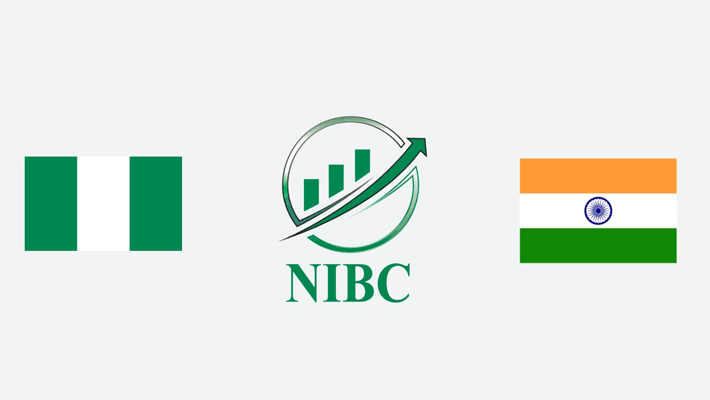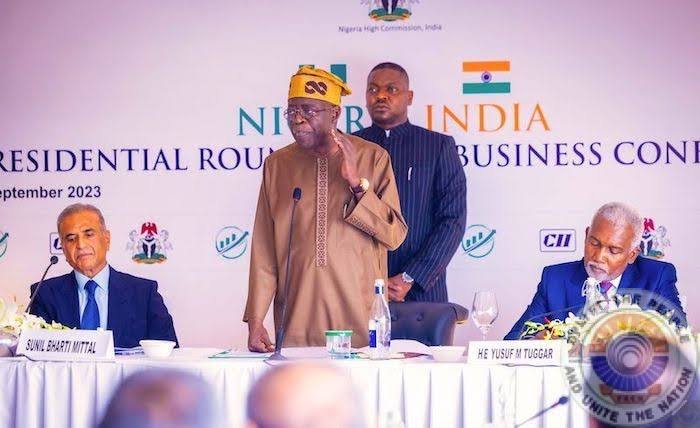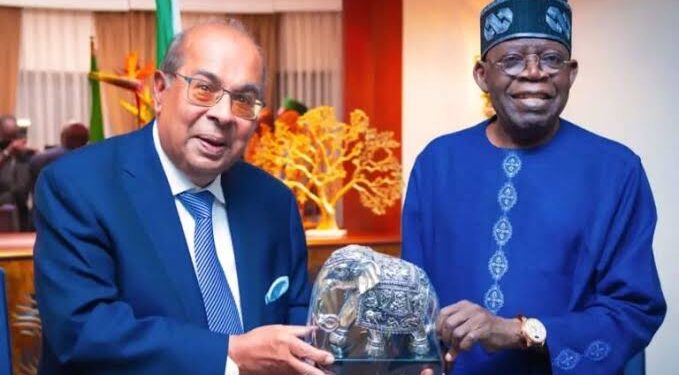The Nigeria-India Business Council (NIBC) has reaffirmed its dedication to fostering and strengthening the trade relationship between Nigeria and India. This commitment was emphasized by Emeka Offor, the chairman of NIBC, during the council’s inaugural board of trustees meeting held in Abuja. The NIBC has set its sights on creating a more dynamic and productive business environment that benefits both nations.
Offor, in his remarks, highlighted the essential role of the council in promoting deeper business and investment ties between Nigeria and India, stressing that this initiative is key to enhancing the growth and success of Nigerian enterprises in both countries. He underscored the council’s mission, which revolves around developing stronger economic connections, fostering collaboration, and encouraging investments that would ultimately lead to the prosperity of Nigerian businesses both at home and in India.

Furthermore, Offor took the opportunity to shed light on the current state of trade between Nigeria and India. He acknowledged that although there have been fluctuations in the trade volume in recent years, the relationship between the two nations remains crucial for their economic progress. He cited specific figures to illustrate this point, noting that in 2022, the bilateral trade between Nigeria and India stood at $14.95 billion. However, by 2023, this figure had decreased to $11.8 billion. These changes underscore the importance of fostering steady and resilient trade relations between the two countries.
“The council aims to enhance existing business relationships and elevate them to a higher level; the council’s efforts are expected to be boosted by the recent presidential visit to India,” Offor said, pointing to recent developments that signal a promising future for the two nations’ economic partnership.
Adding to Offor’s remarks, Dere Otubu, the vice-chairman of NIBC, reiterated the council’s dedication to improving Nigeria’s export capacities and enhancing foreign exchange revenues. He noted that one of NIBC’s primary goals is to address the underrepresentation of Nigerian businesses in the Indian market, where vast opportunities abound. He encouraged Nigerian entrepreneurs, whether established or emerging, to seize the moment and partner with the council to foster stronger trade relations between the two nations. According to Otubu, “Nigeria’s comparative advantage in natural resources and with the vast Indian market, with over 1.4 billion people, presents significant opportunities for Nigerian businesses to expand and improve product presentation.”
In addition to the statements by Offor and Otubu, NIBC’s director-general, Chijioke James, expressed confidence in Nigeria’s current investment landscape, which he believes is ripe for growth. James emphasized that the NIBC is determined to sustain the momentum generated by recent discussions and to introduce innovative initiatives that will further enhance trade relations between Nigeria and India. He also shared the council’s plans to establish a working group dedicated to exploring various sectors with potential for bilateral cooperation. This group will focus on finding new avenues to strengthen Nigeria-India trade relations.

Former defense minister Adetokumbo Kayode also spoke at the event, stressing that Nigeria is well-positioned to excel in business and commerce. He remarked that the inauguration of the council has opened new opportunities for collaboration and growth between Nigeria and India, particularly in areas such as the creative industry and manufacturing sectors. Kayode identified the creative sector, in particular, as one with tremendous potential for expansion. He suggested that with the right expertise and infrastructure, such as the establishment of cinema villages, Nigeria could tap into the value chain of the creative economy, providing employment opportunities for the youth.
Kayode also pointed to India’s advancements in military technology as a sector with great potential for cooperation between the two nations. According to him, Nigeria stands to gain from these developments by moving away from a reliance on imports and focusing more on local manufacturing or assembly. He emphasized that this shift is essential for the country’s long-term economic stability and is backed by a law signed by the current government, which supports the move toward local production.
In summary, the NIBC is positioning itself as a key player in advancing trade relations between Nigeria and India. Through its various initiatives, the council aims to strengthen existing ties, enhance business opportunities, and promote sustainable growth in sectors that can significantly impact both nations. The meeting in Abuja has set the stage for a new chapter in Nigeria-India business relations, with the potential for far-reaching benefits across multiple industries.






























